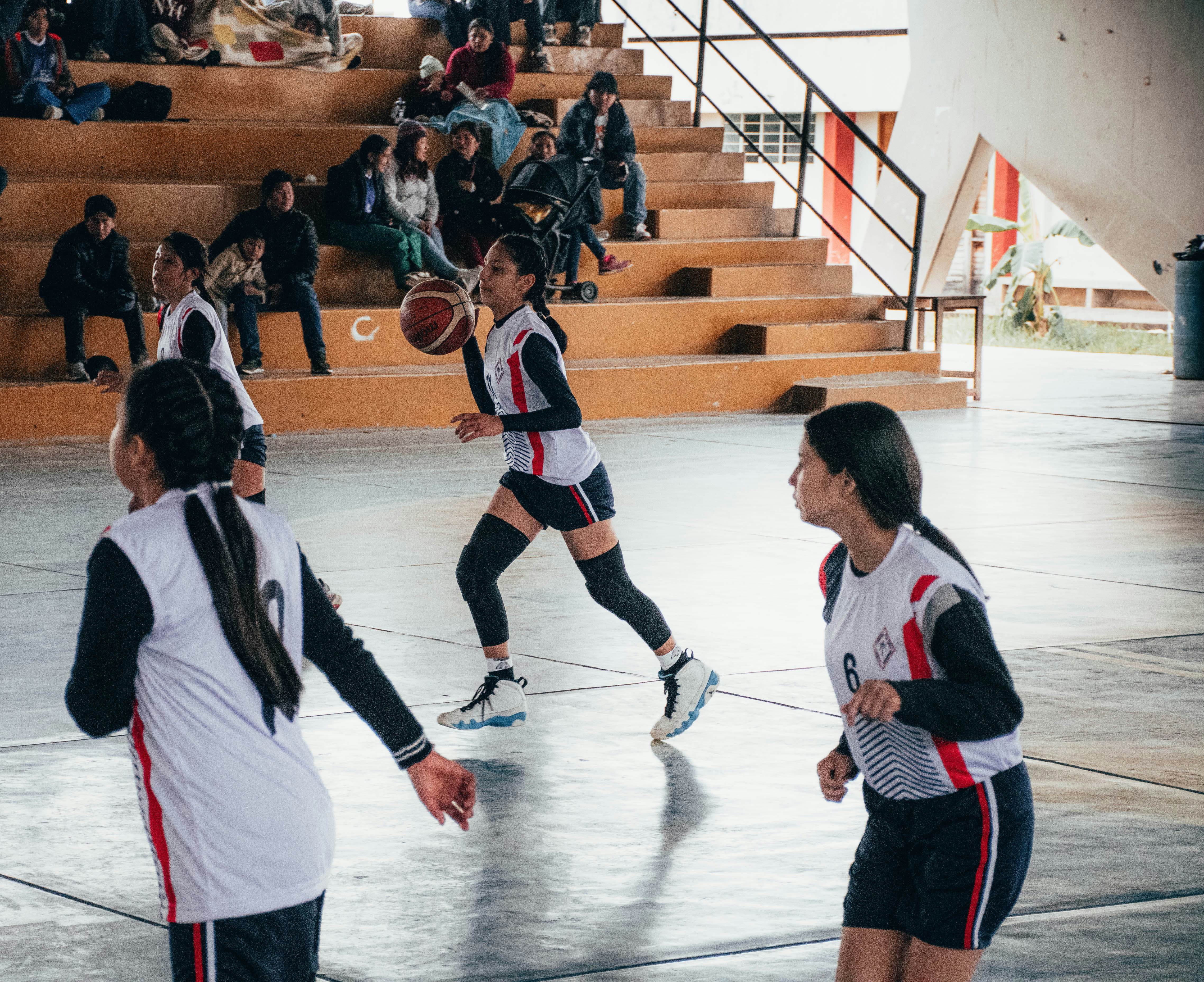The Resilience Factor: Unlocking Athlete Mentality Beyond Stats
In the high-stakes world of sports, physical prowess is often the first thing that comes to mind. However, the hidden gem that often goes unnoticed is the psychological resilience of artists on the field. What if we told you that mental fortitude not only shapes game outcomes but also captivates fans in ways statistics cannot? As we delve into the resilience factor, we will uncover how athletes' mental strength influences their performance under pressure, shapes thrilling narratives, and fosters a deep emotional connection with fans. Join us on this journey as we combine expert insights, athlete stories, and data that reveal the unexpected emotional currents flowing through the heart of sports.
Understanding Psychological Resilience in Sports

Psychological resilience is the ability to bounce back from adversity, overcome challenges, and adapt positively in high-pressure situations. For athletes, this might mean hitting the ground running after a devastating loss or rallying after an injury. Sports psychologists like Dr. John Sullivan, who specializes in athlete well-being, emphasize that resilience is not just an inherent trait but a skill that can be cultivated through experience, training, and support systems.
Take tennis superstar Serena Williams, for instance. Throughout her career, Williams has faced numerous setbacks, including injuries and personal challenges. Her ability to come back stronger is not solely due to her physical training but significantly rooted in her mental resilience. She embodies the idea that success is as much about mental strength as it is about physical ability.
High-Stakes Moments: When Resilience Shines Brightest

The playoffs. The final minutes of a championship game. These are the times that test not just athletic skill but the psychological resilience of athletes. Consider the 2016 NBA Finals, where the Cleveland Cavaliers staged a historic comeback against the Golden State Warriors. Trailing 3-1 in the series, it was LeBron James's unyielding mindset that galvanized the team. His famous block in Game 7 is a testament to how mental resilience can redefine a game’s narrative.
Fan engagement increases dramatically during these high-stakes moments. According to a study by Nielsen, viewers are 87% more likely to share their emotions on social media when their teams are in critical situations. This not only reflects the immediate excitement but signifies a deeper emotional tie to the athletes' journeys.
Curious about how social media sentiment can predict these game outcomes? Check out our article on social media sentiment analysis.
The Athlete’s Mental Playbook

Training regimes for athletes traditionally emphasize physical fitness; however, an increasing number of organizations are now integrating mental conditioning into their training routines. Strategies such as mindfulness, visualization, and cognitive-behavioral techniques are becoming commonplace. For example, many teams incorporate meditation and yoga sessions, allowing players to develop a more significant level of mental awareness and resilience.
A personal story to consider is that of Michael Phelps. The Olympic swimmer battled anxiety and depression throughout his career. Through therapy and mental health strategies, he developed resilience that allowed him to perform under pressure. His experiences resonate with many, leading to discussions about the importance of mental health in sports.
Further exploring the practices athletes adopt can deepen our understanding of this interplay. For insights into mental health strategies that promote athlete resilience, visit our article on mental health strategies of athletes.
What Fans Don't See: The Emotional Work Behind the Scenes

Athletes are often viewed through the lens of their on-field performances. However, what goes on behind the scenes is equally significant. The emotional labor that athletes engage in—navigating pressures from fans, sponsors, and personal aspirations—plays into their overall resilience.
For instance, during the pandemic, many athletes faced isolation and uncertainty, affecting their mental health. This led to notable challenges on and off the field. However, stories of athletes like Naomi Osaka taking a stand for their mental health have reshaped discussions around resilience, drawing increased fan support and admiration.
This shift towards understanding athletes as individuals facing real emotional challenges can also elevate fan engagement. When fans relate to the personal stories of athletes, the emotional stakes of games heighten. Consequently, there’s a spike in discussions and a sense of community formed around shared experiences and journeys.
The Role of External Support: Coaches, Family, and Fans

Support systems are vital for an athlete's mental resilience. Coaches play a pivotal role in creating an environment where athletes feel safe to express themselves. The importance of trust cannot be overstated. A coach's encouragement or a well-timed word of advice during critical moments can transform an athlete's mindset.
Family members and friends also contribute significantly to resilience levels. The emotional support provided during tough times, whether through wins or losses, can establish a strong foundation. For example, during Olympic events, many athletes go through extensive media scrutiny. A strong support network helps them maintain their focus and self-confidence.
Moreover, fans can bolster an athlete's resilience. Research shows that athletes perform better when they feel they have the support of their fan base. The emotional energy that comes from a packed stadium or supportive online community can spur an athlete to dig deeper.
For a more in-depth look at how community engagement impacts athletes, wander over to our article on revitalizing community through sports.
The Science Behind Fan Engagement

As loyalty between athletes and fans grows, understanding the science behind this relationship becomes critical. Recent studies suggest that passionate fan engagement can reduce the stress athletes face, making them more resilient during high-pressure situations.
Algorithms are now used to analyze social media activity, allowing teams to understand fan sentiment and engagement in real-time. This insight helps shape strategies both on and off the field. In critical moments, such as a last-minute goal or buzzer-beater, the emotional ties fans feel amplify the experience, leading to euphoric celebrations or heartbreaks that linger long after the game.
This dynamic illustrates how psychological resilience doesn't only matter for athletes but also for fans who share the emotional journeys. Interested in the unseen variables that influence game outcomes? Dive into our exploration of AI in sports strategy.
Exploring the Cultural Impact of Resilience in Sports

The emotional components of sports extend into culture itself. The rise in discussions surrounding resilience has prompted broader social movements, inspiring athletes to speak out on mental health issues. This creates a ripple effect, challenging norms and encouraging open conversations about mental well-being.
As more athletes advocate for mental health awareness, it strengthens their bonds with fans, who see them as role models. For instance, the "Mental Health Awareness Month" initiatives led by various athletes have not only promoted good mental health practices but have also united fans and players in shared understanding.
Sports can serve as a powerful platform for discussing resilience, not just within the confines of a game but society as a whole. This connection creates an emotional tapestry that weaves through the fabric of communities and cultures.
Final Thoughts: Embracing the Resilience Factor in Sports
As we uncover the multifaceted layers of psychological resilience in sports, the importance of mental endurance becomes strikingly clear. It influences not just how athletes perform but how they connect with fans and foster community.
For sports enthusiasts, the narratives of resilience can deepen your appreciation for the games you love. Whether it's watching your team fight through challenges or recognizing a player's personal battles, these emotional elements shape the experience of sports.
As fans, we’re more than spectators; we’re participants in a culture that thrives on resilience, presence, and shared stories. This is your opportunity to embrace the resilience factor and explore how the psychological dynamics of athletes transform not only themselves but also the heart of sports culture.
For more enlightening insights on the evolving dynamics within sports, explore our other articles on sports analytics and community engagement. Keep those passion projects alive—because in sports and resilience alike, the journey is everything.



